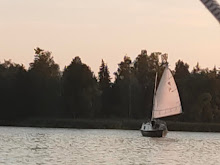Ukazał się pierwszy numer magazynu surround, w którym m.in. artykuły o Wandelweiser, Kevinie Drummie, Vanessie Rossetto, Grahamie Lambkinie, AEU (nowym sublabelu Erstwhile, koniecznie sprawdźcie album Guthrie/Kamerman) i mój wywiad z Ralfem Wehowsky'm.
Dziś premierę ma When Snakeboy is Dying Roberta Piotrowicza. Znam ten materiał od dawna, słuchałem go wiele razy, ale nadal robi on na mnie olbrzymie wrażenie. I w końcu może być tak, jak to miało być, że można czytać ten wywiad słuchając muzyki, o której mowa.
Podcasty: oczywiście polecam każdą odsłonę densinghour, ale w tym tygodniu polecam szczególnie, bo Anthony zrobił coś świetnego. Steve Summers i Bookworms dla Concepto Radio, a do tego można poczytać tę rozmowę. Blowing Up The Workshop też nie próżnuje: Lussuria oraz L'estasi Dell'oro.
Kiedy czytałem pierwszy raz o filmie Leviathan, nie wiedziałem, że w jego tworzeniu brał udział Ernst Karel (kiedyś udzielający się w duecie EKG, którego jedną płytę nawet tu recenzowałem. Uświadomił mi to dopiero ciekawy wywiad z nim, w którym mowa o jego pracy w Sensory Ethnography Lab na Harvardzie i o dźwięku w filmie:
I was really surprised when people writing about Sweetgrass would comment on the sound as being somehow remarkable. To me, it was as straightforward a way of dealing with sound as I could imagine. We weren't doing anything tricky. There are no effects. A lot of it is sync sound, but I think it is something like what you just said, where the sound is allowed to intrude upon what's going on more than might otherwise be the case. For a lot of documentaries, the sound is reined in. It's especially exaggerated when you have a voiceover. Whenever that voice comes in, the sound mysteriously vanishes or gets shifted way down. Sound becomes an optional component of the image when it can suddenly come down for no reason other than someone wants to talk over it.




